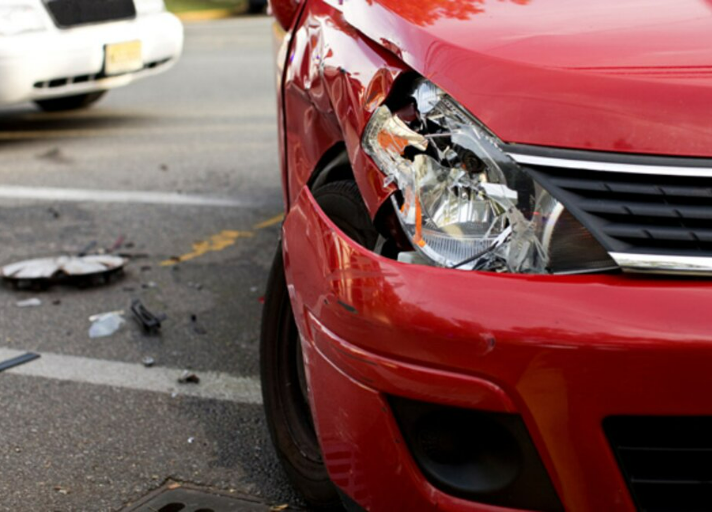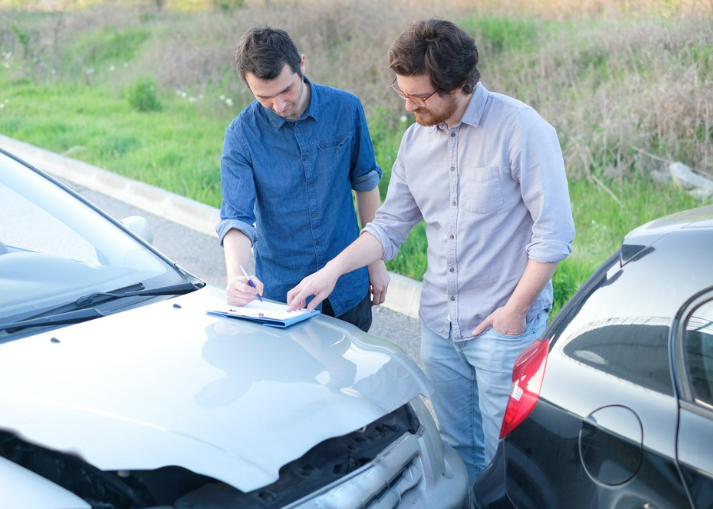
Vehicle collisions are an unfortunate reality, often accompanied by significant financial implications. According to the National Safety Council (NSC), around 5% of the 235 million licensed drivers in the U.S. experience a motor vehicle accident. The costs associated with these incidents vary widely, spanning from $6,000 to well over $1 million, contingent on the accident’s severity. While practicing safe driving behaviors can mitigate the risk of such events, understanding the appropriate post-collision actions is equally vital. This knowledge can help minimize expenses and facilitate a smooth insurance claim process.
1. Be prepared for an accident
Preparing financially for a car accident begins by securing a robust auto insurance policy. If you’re unsure about your vehicle’s coverage, carefully review your policy and make necessary adjustments to guarantee adequate financial protection. Consider raising liability limits or adding collision coverage if you currently carry only your state’s minimum required coverage. This proactive step can diminish your potential out-of-pocket expenses for others’ costs and facilitate filing a claim for damage to your vehicle.
In the unfortunate event of a car accident, having all essential insurance information readily accessible is imperative for a smoother process, including claim filing. Equally important is carrying basic safety equipment to document the scene and ensure visibility. This typically includes:
- Flashlight and high-visibility safety vest
- First aid kit, including protective footwear and warm clothing
- Proof of insurance in digital or physical form
- Proof of registration
- Contact information for your insurance company
- Pen and paper for recording scene details
- Camera for documenting damage
2. Make sure everyone is safe, then call the police
“Ensuring everyone’s safety is the top priority,” emphasizes Kip Diggs, a State Farm Insurance spokesperson. If there are any serious injuries, promptly call 911 for medical assistance. Regardless, it’s crucial to move the vehicles away from traffic to prevent further accidents.
Contrary to common belief, experts recommend contacting the authorities following any car accident, regardless of its severity. “Even if the other party offers assurances of handling things privately, it’s still advisable to make the call,” advises Beth Hanlon, an Allstate Insurance agent based in Riverhead, New York.
This precautionary measure provides added protection for all parties involved, with the police report serving as an official record of the incident. On interstate highways, contact county or state law enforcement.
In minor accidents with no injuries or significant damage, officers typically file an incident report, facilitating information exchange. For more serious incidents, an accident report is generated to aid in the insurance process and determine legal responsibilities.
It’s important to note that in minor accidents, police presence at the scene isn’t guaranteed. “We prioritize our response based on available resources,” explains James Kenneally, a Boston police officer. “Not every minor collision necessitates dispatching a police car.”
3. Call your insurance company
Many insurance professionals advise contacting your car insurance company regardless of the accident’s severity.
However, Michael Gutter, assistant professor of family financial management at the University of Florida, highlights situations where involving your insurer might not be advisable. He notes that in some instances, state laws prevent insurance companies from raising rates unless the insured was at fault. “But if you’re not safeguarded against rate increases, I understand why someone might hesitate to call their insurance company for just a minor collision,” he adds.
In cases where notifying the insurance company is necessary, it’s crucial to do so promptly. “Sometimes, our clients find themselves in accidents, and the other party contacts us first. That can raise concerns,” explains Hanlon. “It’s important to inform your insurance company within a day.”
4. Gather and exchange insurance information

Car accidents can induce stress, and as time passes, recollecting details about the event may become challenging. Collecting all pertinent information at the scene stands as one of the pivotal steps to take post-accident. This proactive measure can potentially streamline the claims process later on. Consider the following:
- Photographing the Scene: Capture images of all vehicles involved from various angles. Include surrounding landmarks such as road signs, traffic lights, and other identifiable features.
- Exchanging Insurance Information: Record the other driver’s name, contact details, insurance company name, and policy number. If they possess proof of insurance, consider capturing a photo. If insurance information isn’t readily available, contacting the insurance company from the scene to verify coverage is advisable.
- Documenting Fresh Details: It’s crucial to jot down details while they’re still vivid in memory. Anticipate inquiries from the insurance company regarding the circumstances preceding and during the accident. Take note of your direction of travel, the street you were on, the location of impact, and the sequence of events. Utilizing methods like drawing a sketch or recording a voice memo can aid in preserving details accurately.
- Obtaining Witness Information: If there are witnesses to the incident, gather their names and contact information. Providing this to the insurance company can potentially corroborate your accident report and offer additional insight into the event. If law enforcement arrives at the scene, they may also undertake this task.
Be mindful of liability
When conversing with the other driver, it’s advisable to limit discussion to exchanging insurance and contact details. “Avoid answering questions or making statements,” advises Gutter. If law enforcement is present, answer their inquiries truthfully. The determination of liability and fault post-accident varies depending on whether you reside in an at-fault or no-fault state. It’s generally recommended not to admit fault and allow the insurance companies to ascertain responsibility.
Reflecting on her experience, Natalie Todoroff, a writer on Bankrate’s insurance editorial team, shares, “I was involved in an accident at 17 because I mistakenly drove the wrong way down a one-way street. In the moment, overwhelmed with fear and guilt, I assumed responsibility, which is cautioned against. My dad gave me a stern lecture afterward.”
5. Determine if a claim needs to be filed
You might find that filing a claim isn’t necessary if the damage is minimal and doesn’t extend to the other party’s vehicle. For instance, if your car sustains $500 worth of damage and your deductible is $1,000, it may not be financially sensible to file a claim.
However, in certain scenarios, most insurance experts recommend involving your insurance company. These scenarios include:
- Injuries, No Matter How Minor: It’s challenging to anticipate the extent of medical expenses, and there’s a possibility of facing legal repercussions.
- Significant Damage or Total Loss of Either Vehicle: When the damage is substantial or if either vehicle is deemed a total loss.
- Uncertain Liability with an Inconclusive Police Report: This situation is common in parking lot accidents where determining fault may be ambiguous due to the absence of traffic signs or lane markings.
- You’re Deemed at Fault: If you’re held responsible for the accident.
In summary, it’s generally advisable to inform your insurance company about any accidents, as their role is to ensure your protection.
It’s essential to note that attempting to modify your insurance coverage after an accident to cover damages that wouldn’t otherwise be included constitutes insurance fraud and could result in severe consequences.
6. Keep track of repairs, appointments and expenses
Remaining engaged throughout the repair process following a car accident is typically a prudent approach. While you may have limited control over where your vehicle is serviced and how repairs are conducted, staying informed about necessary repairs and their execution can contribute to ensuring high-quality work. It’s advisable, for instance, to verify that the mechanic utilizes original manufacturer parts.
Moreover, it’s crucial to allow the insurance companies to handle discussions with the other driver post-accident.
If contacted by the other driver’s insurance company, redirect them to your insurance provider. “Although cooperation with the other party’s insurance company isn’t mandatory, your claims representative will advise on the best course of action, which may involve collaborating with the other party’s carrier,” explains Burklin.
Lastly, retaining receipts for all repair work and medical expenses can be beneficial. Keeping a record of appointments, medical treatments, and associated costs can facilitate full reimbursement for eligible expenses. Additionally, having documentation of repairs may prove valuable in the event of future issues with the repair work or when selling the vehicle, allowing you to pass along pertinent information to the new owner.
7. Evaluate your car insurance rates
Following an accident leading to a claim, you might notice a hike in your auto insurance rates. This could prompt you to explore other options and compare quotes to assess whether your current carrier still provides the most competitive rates for your situation. While other carriers will have access to your driving history, they might not weigh at-fault accidents as heavily.
Certain carriers may impose a policy cancellation fee should you decide to terminate your policy prematurely. It could be beneficial to communicate with your current provider to explore potential cost-saving avenues, such as participation in a telematics program.
